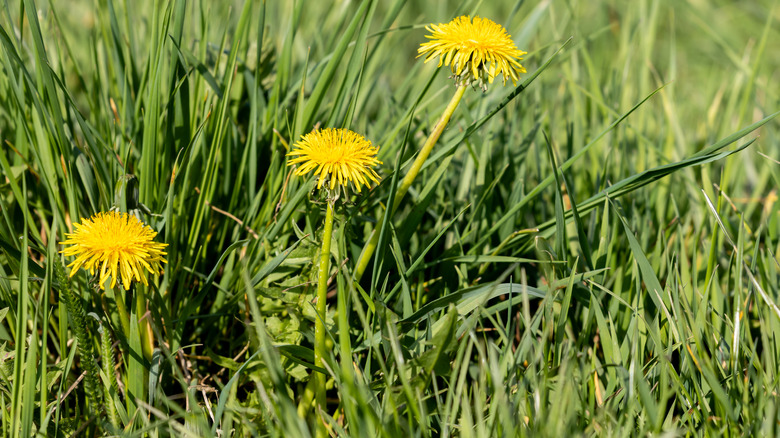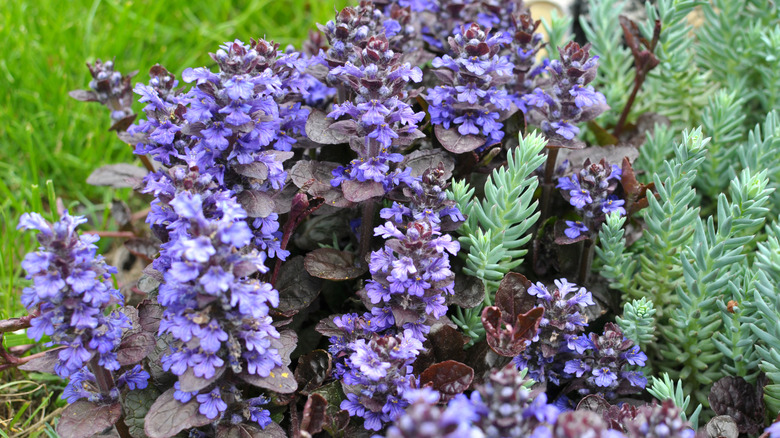The Colorful Ground Cover That Can Help Prevent Weeds
Weeds are a huge problem to deal with in almost any yard or garden. Some are incredibly difficult to remove, even with the most effective methods that banish weeds without harming grass or other plants. When you're at the end of your rope after spending hours every day pulling out these pesky problems, it's time to look at another option. Thankfully, there is ground cover that can help you in your fight, known as ajuga or bugleweed (Ajuga reptans). Ajuga is not native to the United States; it originates from parts of Europe, Africa, and Asia. However, it has naturalized in the U.S. and has managed to make a home for itself without pushing out native plants or taking over a space.
Ajuga is a beautiful flowering plant that serves as ground cover. It produces an abundance of blue flowers, though on occasion, they can be pink or white. Even the foliage colors vary in color, including green, burgundy, bronze, chocolate, or gold. One of the biggest perks of growing bugleweed is how quickly it spreads. It's a dense plant, which helps to smother weeds. Another perk of ajuga is that it's pretty resistant to most animals. Plus, since the leaves are incredibly bitter, they'll help keep away most annoying pests. To get the best results, plant ajuga 8 to 12 inches apart to maximize its weed-suppressing effect.
What to know when growing Ajuga
Ajuga benefits from having just a little bit of fertilizer. It also likes a fair amount of moisture, though, once established, it can tolerate a bit of drought. It doesn't handle sun well and instead does better with full or partial shade. Additionally, when you first plant them in the ground, it's a good idea to mulch around them. This will prevent the bugleweed from competing for space with fast-growing weeds and give them time to get established.
It is worth mentioning that while ajuga has naturalized in several states, there are a few places where it is invasive. This means that sometimes, you may need to reconsider growing ajuga as ground cover, or look at alternatives like alumroot (Heuchera americana) or self-heal (Prunella vulgaris ssp. lanceolata). You should always do some research before planting to make sure it won't hurt native plants in your area or get out of control. Since it grows so quickly, it doesn't take ajuga long to spread and envelop an area. It's best to plant in large spaces where you want no other plants or weeds to grow, as it will quickly smother anything that tries to settle down. To make sure you can keep ajuga contained, consider some clever ways to keep invasive plants from spreading in your garden.

